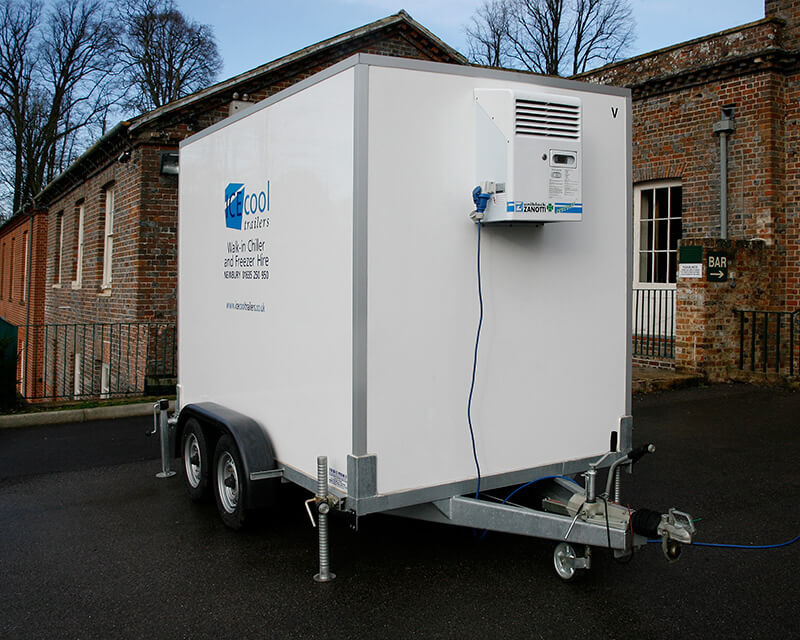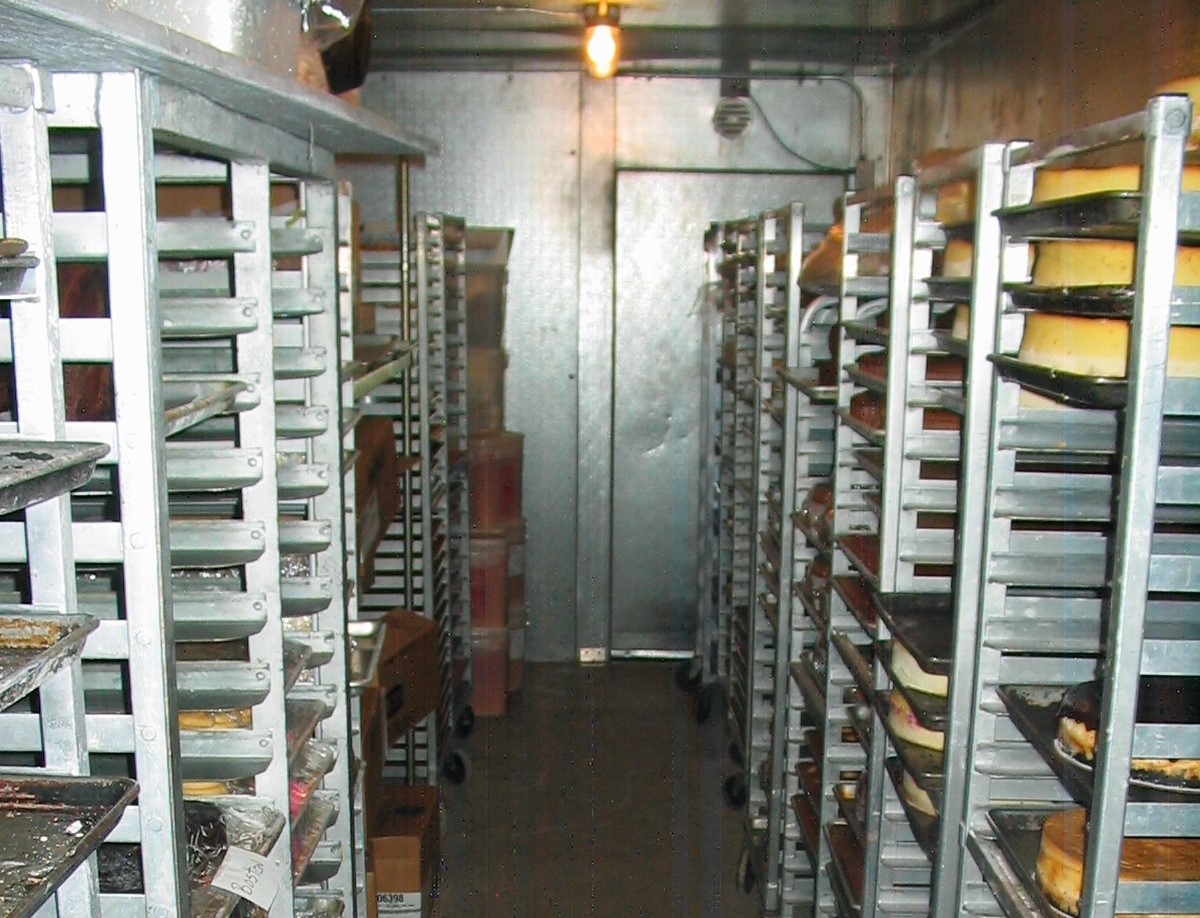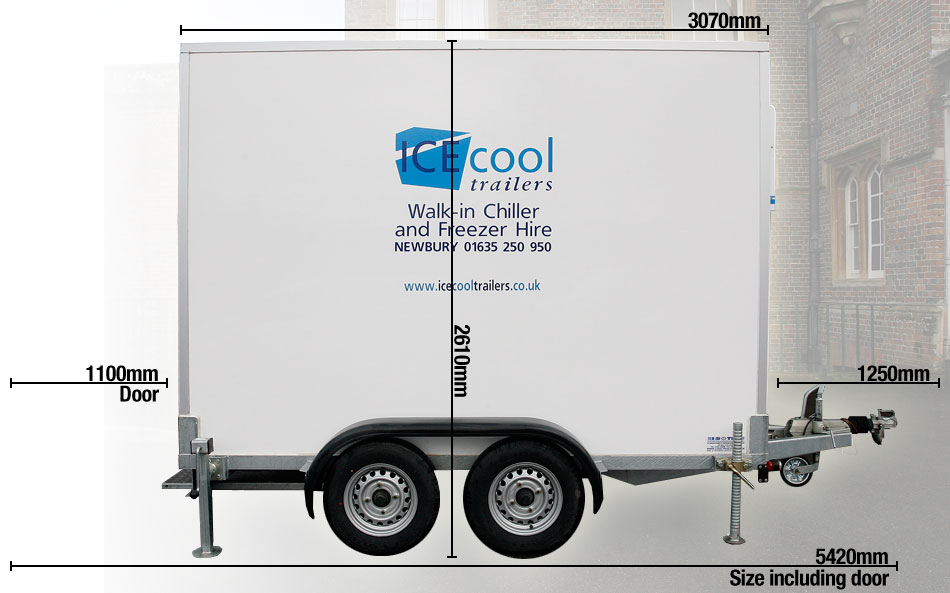Freezer Trailers vs Traditional Freezers: Which Is the Best Option for You?
Choosing the right cold storage is crucial for industries that rely on temperature control, from restaurants and event catering to large-scale food production. For many, the choice comes down to freezer trailers or traditional freezers, both of which offer distinct benefits. In this guide, we’ll explore the features, costs, and best use cases of each, helping you decide which option fits your needs.
What is a Freezer Trailer?
Freezer trailers are portable cold storage units designed for flexibility and ease of use. Unlike traditional, stationary freezers, freezer trailers can be rented or purchased to provide temporary, mobile solutions for storing perishable items. Often utilised in event settings, pop-up markets, or during peak business seasons, freezer trailers are a go-to option for businesses that require adaptable storage.
Key Features of Freezer Trailers
Freezer trailers offer specific features that make them ideal for temporary or mobile storage needs:
- Portability: Easily transported to various locations, freezer trailers are ideal for events, festivals, or businesses with shifting storage needs.
- Temperature Control: These units are designed to maintain precise temperatures, ensuring that perishable goods remain in optimal condition.
- Scalability: You can rent multiple units as your business expands or during busy seasons, offering a flexible storage solution that grows with demand.
- Versatility: Freezer trailers can serve various purposes, from storing food items to pharmaceutical products, making them suitable for diverse industries.
What is a Traditional Freezer?
Traditional freezers are stationary cold storage units typically found in permanent locations such as restaurants, supermarkets, and warehouses. They come in different formats—walk-in freezers, chest freezers, and upright models—each suited to specific business requirements.
Key Features of Traditional Freezers
Traditional freezers are valued for their stability and consistent performance over time:
- Stationary Design: Installed at a fixed location, traditional freezers are perfect for businesses with dedicated cold storage areas.
- Customisation: Many traditional freezers can be tailored with features like adjustable shelving, specific temperature ranges, and door types.
- Cost-Effective Initial Investment: Compared to renting a freezer trailer, traditional freezers generally have lower upfront costs, making them a feasible option for long-term use.
- Reliable Storage: With a sturdy design and permanent placement, traditional freezers offer consistent access to goods without the need for transportation or relocation.
Comparing Freezer Trailers and Traditional Freezers
Each type of cold storage has advantages based on factors like cost, capacity, and maintenance requirements. Here’s a closer look at what sets them apart.
Cost Comparison
When it comes to expenses, the choice between freezer trailer rental and a traditional freezer depends on your intended use:
- Upfront Costs: Traditional freezers often have a lower upfront purchase price, especially if you don’t require a large unit. However, if you need multiple units, freezer trailers could offer a cost-effective solution through rental flexibility.
- Rental Options: A freezer trailer for hire in the UK provides businesses with temporary, mobile cold storage without a significant upfront investment, which can be beneficial for short-term needs like events or seasonal demand.
- Operational Costs: Traditional freezers may incur higher energy bills due to constant use, while modern freezer trailers often come with energy-saving technologies that reduce operating costs over time.
Storage Capacity and Flexibility

Your storage needs can vary greatly depending on the nature of your business and the duration of storage:
- Space Needs: If space is a premium, traditional freezers can be customised to fit seamlessly into your setup. On the other hand, freezer trailers provide extra capacity during peak times or events, without requiring permanent space.
- Scalability: With freezer trailers, you have the option to increase storage capacity as needed by adding more units. This flexibility is ideal for expanding businesses or those with fluctuating storage requirements, such as event organisers or seasonal food producers.
Energy Efficiency and Costs
Energy efficiency can directly impact your operational expenses, so it’s important to consider:
- Energy Efficiency: Freezer trailers often incorporate modern insulation and cooling technologies designed to conserve energy, which can lead to lower electricity usage.
- Running Costs: Traditional freezers, particularly older models, can consume more energy and contribute to higher monthly bills. Newer models, however, may feature energy-saving features to help offset these costs.
Maintenance and Durability
Maintenance demands and long-term durability are other essential factors to weigh:
- Maintenance Needs: Traditional freezers, being stationary, typically require regular but predictable maintenance checks. Since freezer trailers are designed for mobility, they are built to withstand transportation, though they might need more frequent inspections if they’re moved often.
- Durability: For businesses that need a long-term, fixed storage solution, traditional freezers offer a durable choice. Freezer trailers, on the other hand, may experience some wear and tear with frequent transport, though they’re built for resilience.
Ideal Use Cases for Each Option
Both freezer trailers and traditional freezers offer unique benefits depending on the situation:
- Events and Temporary Needs: Freezer trailers shine in temporary settings like outdoor festivals, weddings, and corporate events, where on-the-go storage is essential.
- Permanent Installations: Traditional freezers are better suited for established locations where consistent, long-term cold storage is required, such as in restaurants, grocery stores, or warehouses.
Making Your Decision
Choosing between a freezer trailer and a traditional freezer depends on your specific requirements, available space, and budget.
Assessing Your Needs
Start by considering how often and where you’ll need cold storage. If you need something flexible and mobile, a freezer trailer may be ideal. For consistent, long-term storage at a single location, a traditional freezer is likely the better choice.
Pros and Cons Summary
To help clarify, here’s a quick recap:
- Freezer Trailers: Portable, scalable, and energy-efficient but may have higher initial rental costs. Ideal for temporary or flexible needs.
- Traditional Freezers: Cost-effective for permanent use, easily customisable, and generally lower maintenance but lack mobility and require dedicated space.
Cost-Benefit Analysis
When weighing the costs, consider the frequency and duration of your cold storage needs. For a business with seasonal demand, renting a freezer trailer could be more economical than investing in a traditional freezer. However, if you require ongoing, consistent storage, a traditional freezer might be the more budget-friendly long-term solution.
Final Thoughts
Deciding between freezer trailers and traditional freezers comes down to your business’s unique demands and future goals. Both offer solid cold storage solutions, so evaluating your immediate and long-term needs will guide you towards the best fit. For more insight into cold storage options, check out our post on comparing walk-in freezer and walk-in cold room solutions. Whether you choose a freezer trailer or a traditional freezer, reliable cold storage is a key investment in your operational success.



